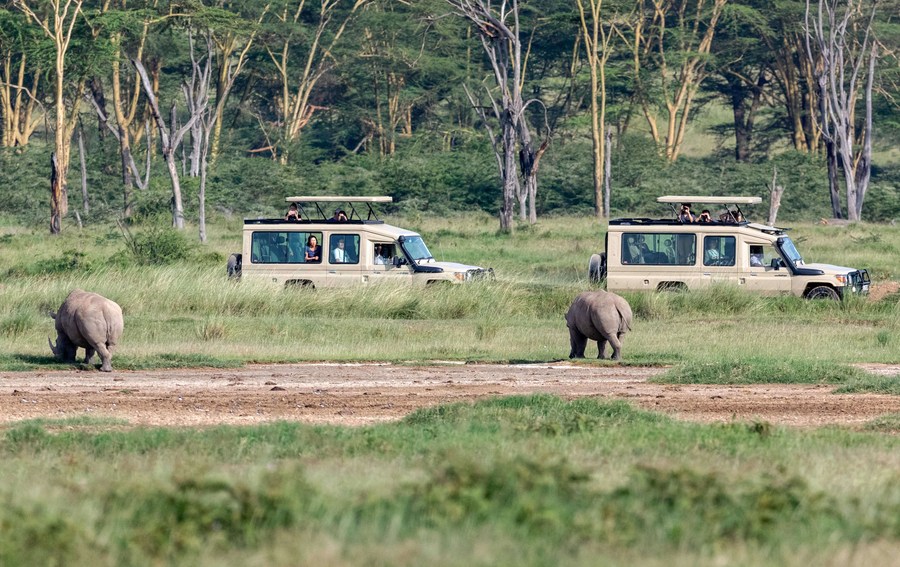
Kenya slashes wildlife parks entry fees to boost tourism recovery

Kenya on Thursday announced a reduction of entry fees to major wildlife sanctuaries for both local and foreign tourists in order to revive a sector that has borne the brunt of the COVID-19 pandemic.
Kenya Wildlife Service (KWS) said the reduced parks entry fees that took effect from Wednesday will last one year as the post-COVID-19 recovery of the tourism sector gathers steam.
“At the same time KWS has given a one-year moratorium to lodge owners in its parks and reserves for rent payment starting July 1, 2020, to June 30, 2021,” said KWS in a statement issued in Nairobi.
Najib Balala, Cabinet Secretary for Tourism and Wildlife made the announcement on the reduction of park entry fees to ease financial burden on local and foreign visitors affected by COVID-19 pandemic.
Balala urged owners of lodges inside wildlife sanctuaries to leverage on savings from the rent moratorium to improve on visitors’ experience and grow their businesses.
“He also called on Kenyans to take advantage of the affordable park entry fees to sample the beauty of Kenya’s flora and fauna,” said KWS.
He also announced a 50 percent discount on filming fees for both local and international producers filming in parks and reserves and challenged them to market Kenya as an ideal tourist destination.
Local and foreign tourists who visit premium wildlife sanctuaries like Nairobi, Amboseli, Lake Nakuru, Tsavo East and West National Parks, will benefit from a 47 percent reduction on entry fees in line with the new changes.
Balala urged investors in the KWS managed parks and reserves to refurbish their facilities and adhere to the Ministry of Health protocols aimed at preventing the spread of coronavirus.
Kenya’s tourism sector is reeling from an unprecedented downturn as hotel bookings and visits to world-famous destinations like wildlife parks and beaches hit an all-time low due to COVID-19.
The Cabinet Secretary for Tourism said on June 29 that the sector has incurred losses amounting to 85 billion shillings (about 800 million U.S. dollars) due to the negative impacts of the pandemic.






